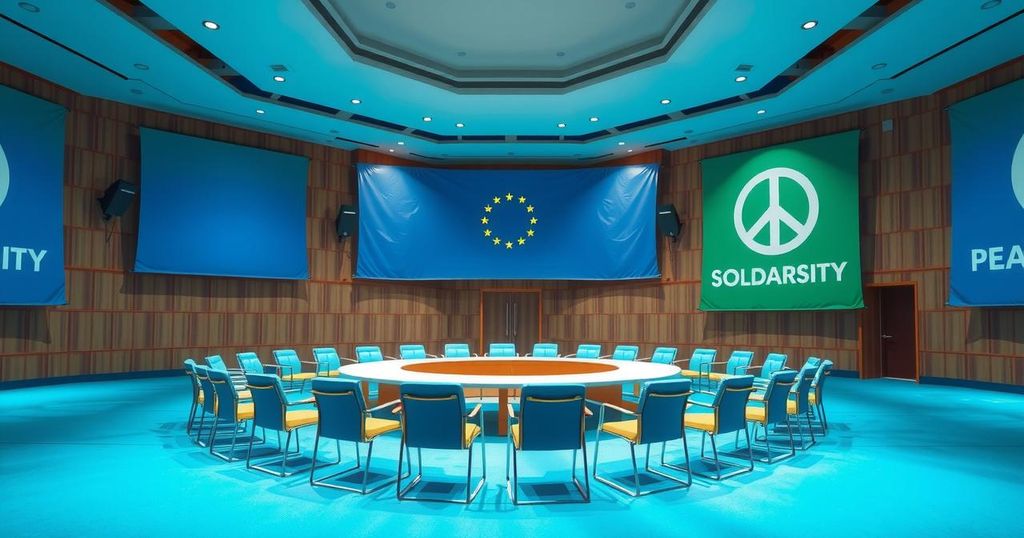The Ninth Brussels Conference, scheduled for March 17, aims to support Syria in its transitional phase post-Assad regime. Key objectives include mobilizing international aid, reinforcing the cooperation between EU and UN, and addressing humanitarian needs and long-term recovery efforts, with particular focus on socio-economic stability.
On March 17, the European Union will convene the Ninth Brussels Conference titled “Standing with Syria: Meeting the Needs for a Successful Transition.” This significant event aims to demonstrate steadfast support for the Syrian populace as they encounter a transformative chapter in their country’s history, particularly following the decline of the Assad regime.
The Conference’s primary goal is to rally international support to facilitate Syria’s transition, generating commitments for humanitarian and non-humanitarian assistance. This encompasses sustained help for Syrians within the nation as well as those in host countries, such as Jordan, Lebanon, Türkiye, Egypt, and Iraq. The initiative advocates for a unified approach to address both immediate and long-term needs of the Syrian people.
The collaboration between the EU and the UN is essential in addressing the ongoing Syrian crisis. The EU advocates for a UN-mediated, Syrian-led political resolution in accordance with UN Security Council Resolution 2254 and the 2012 Geneva Communiqué. Furthermore, the EU maintains engagement with international partners and Syrian civil society to support the UN-led Geneva process effectively.
Since 2011, the EU and its member states have pledged over €30 billion in assistance for individuals affected by the Syrian conflict, establishing the EU as the world’s largest donor concerning the crisis. This aid encompasses humanitarian efforts, stabilization initiatives, and resilience-building projects within Syria and neighboring states.
Additionally, the EU and UN jointly address the displacement crisis, ensuring that return efforts are voluntary, safe, and dignified according to UNHCR standards. The EU’s commitment entails supporting measures that enhance the ability of humanitarian organizations to monitor the conditions for return and provide vital services.
The EU also endorses UN mechanisms that promote justice and accountability, such as the International, Impartial, and Independent Mechanism (IIIM) and the UN Commission of Inquiry. Furthermore, the EU advocates for a UN initiative aimed at clarifying the circumstances surrounding Syria’s missing persons, striving for enduring justice and reconciliation.
To reinforce its dedication, the EU plans to facilitate a civil society event later in the year in Damascus, promoting ongoing engagement with Syrian communities. Additionally, the European Commission’s Directorate-General for the Middle East, North Africa, and the Gulf will hold a senior-level workshop on March 18 entitled “How to Ensure Coordinated International Support to Syria’s Socio-Economic Recovery?” This workshop will build upon prior ministerial discussions to address Syria’s socio-economic recovery and identify challenges and strategies for stabilization and job creation.
In conclusion, the Ninth Brussels Conference serves as a pivotal platform for the EU and the UN to demonstrate their unwavering commitment to the Syrian people amidst significant transitional challenges. By mobilizing international support and emphasizing the need for a coordinated effort to address Syria’s humanitarian and developmental needs, the Conference seeks to foster a peaceful, inclusive, and prosperous future for Syria. Moreover, the ongoing collaboration between the EU and UN is crucial for addressing the various crises emanating from the Syrian conflict, ensuring justice and support for those affected.
Original Source: unric.org




